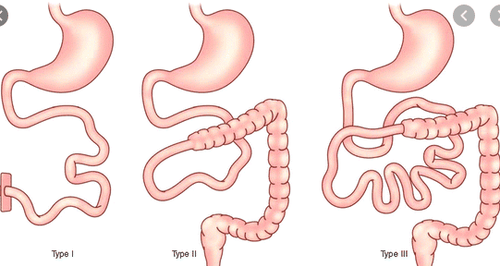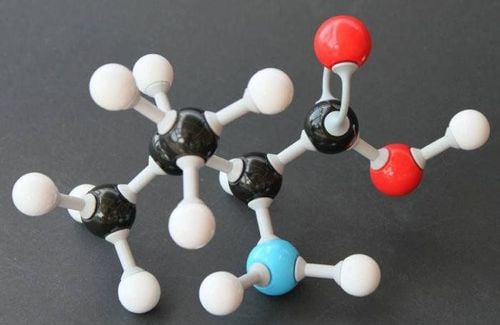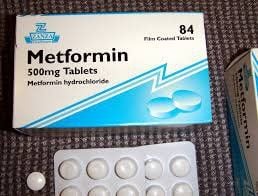This is an automatically translated article.
Short-chain fatty acids are made mainly by friendly bacteria in the human gut. In fact, they are the main source of fuel for cells in the colon. What's more, short-chain fatty acids also play an important role in the prevention of certain diseases, such as type 2 diabetes, inflammation, heart disease or obesity.1. What are short chain fatty acids?
Short-chain fatty acids are fatty acids that contain less than 6 carbon (C) atoms. They are made when friendly bacteria living in the gut ferment fiber in the colon and serve as the main source of energy for the cells lining the body's colon. For this reason, short-chain fatty acids have a definite place in gut health.As for the excess short chain fatty acids, they are commonly used for many different functions in the body. They are capable of providing about 10% of a person's daily calorie needs. In addition, short-chain fatty acids are also an important factor, participating in the metabolism of nutrients such as fats and carbs. According to research, about 95% of the short-chain fatty acids in your body are Acetate (C2), Propionate (C3) and Butyrate (C4). Butyrate and Acetate are often combined with other cholesterol and fatty acids, while Propionate (C3) is mainly involved in the production of glucose in the liver.
In fact, there are many factors that influence the levels of short-chain fatty acids in your colon, including the number of gut bacteria, food sources, and how long food moves through your digestive system.
2. Food sources rich in short-chain fatty acids
Experts recommend that people consume more foods rich in fiber, such as vegetables, fruits and legumes, to increase the amount of short-chain fatty acids in the colon.In a recent study found a positive association between the consumption of a variety of plant foods and increased levels of short-chain fatty acids in the stool. However, the amount and type of fiber you consume also significantly affects the composition of bacteria in your gut as well as the production of short-chain fatty acids. For example, when you consume a lot of fiber, it will help increase Butyrate production and vice versa, when you reduce the amount of fiber, it will cause the production of this short-chain fatty acid to be reduced.
Here are the best types of fiber for the production of short-chain fatty acids in the colon, including:
Fructooligosaccharides (FOS): Commonly found in various fruits and vegetables, including onions asparagus, banana, garlic and asparagus. Inulin: You can get additional sources of inulin through the consumption of foods like garlic, artichokes, onions, rye, wheat, and asparagus. Resistant starch: Common in grains, rice, barley, green bananas, beans, legumes, and potatoes that are cooked and then cooled. Pectin: Excellent sources of pectin include apricots, apples, oranges, carrots, and several other fruits. Arabinoxylan: Commonly found mainly in cereal grains. It is the most common type of fiber in wheat bran, making up about 70% of the total fiber content. Guar gum: Extracted mainly from Guar beans. In addition, some butters, cheeses, and cow's milk also contain small amounts of butirate compounds.

Các loại rau, trái cây như hành tây, chuối, táo,... có thể gia tăng lượng axit béo chuỗi ngắn
3. Short-chain fatty acids can prevent digestive disorders
Short-chain fatty acids may offer certain benefits in the prevention and treatment of certain digestive disorders.Diarrhea: Gut bacteria will convert pectin and resistant starch into short-chain fatty acids, helping to reduce diarrhea in children.
Inflammatory bowel disease: Crohn's disease and ulcerative colitis are the 2 most common types of inflammatory bowel disease (IBD), characterized by chronic inflammation of the intestines. Because of its anti-inflammatory properties, Butyrate has been widely used to treat both of these inflammatory bowel diseases.
Animal studies have found that supplementing with Butyrate and Acetate has the ability to reduce intestinal inflammation. In addition, low levels of short-chain fatty acids in the colon can worsen ulcerative colitis.
In nearly 53% of people with Crohn's disease when supplemented with Butyrate significantly improved their inflammatory symptoms. For patients with ulcerative colitis, when using laxatives from short-chain fatty acids about 2 times / day for 6 weeks, there was a 13% reduction in unpleasant symptoms of the disease.
4. Short-chain fatty acids help prevent colon cancer
Short-chain fatty acids also play an important role in the prevention and treatment of certain types of cancer, especially colon cancer. Several laboratory studies have shown that Butyrate has the ability to keep colon cells healthy, while preventing and promoting the destruction of colon cancer cells.Health care professionals also agree that following a high-fiber diet can reduce risk factors for colon cancer. However, the colon cancer prevention benefits are only achieved when a high-fiber diet is combined with the right type of gut bacteria. Specifically, a diet high in fiber but without butyrate-producing bacteria alone would not provide a protective effect against colon cancer. Likewise, even though a low-fiber diet has butyrate-producing gut bacteria, it's not as effective in preventing cancer as you might think.
5. Short-chain fatty acids contribute to diabetes control
There is a lot of scientific evidence that the short-chain fatty acid Butyrate may have some positive effects on people with type 2 diabetes. In fact, short-chain fatty acids help increase enzyme activity levels in muscle tissue and the liver, thereby keeping your blood sugar under control. In addition, some studies have also found that following a diet high in fermentable fiber effectively improves blood sugar levels as well as increases the body's insulin sensitivity. However, this result is usually only achieved in people with insulin resistance or who are overweight, but not in people who are in good health.6. Short-chain fatty acids help lose weight effectively
The composition of the gut microbiota has certain effects on the body's absorption of nutrients and energy regulation, so it is also closely related to the development of obesity. enlarged . Many recent studies have shown that short-chain fatty acids can regulate fat metabolism by increasing fat burning and decreasing fat storage. At that time, the amount of free fatty acids in the blood decreases and effectively prevents weight gain.To test the weight loss effects of short-chain fatty acids, scientists performed an animal test. After about 5 weeks of Butyrate treatment, the obese mice lost 10.2% of their baseline body weight and 10% of their body fat. In addition, acetate-supplemented mice also showed signs of decreased fat storage.
7. Short-chain fatty acids support heart health
In humans, fiber intake is strongly associated with reduced inflammation and cardiovascular disease risk. However, this depends largely on the type and source of fiber you use.One of the reasons that fiber may reduce the risk of heart disease is its ability to increase the production of short-chain fatty acids in the colon. On the other hand, short-chain fatty acids are also known to reduce high cholesterol levels - a risk factor for dangerous heart diseases.

Axit béo chuỗi ngắn có thể giúp bạn tăng cường sức khỏe tim mạch
8. Should Short Chain Fatty Acid Supplements Be Used?
Short-chain fatty acid supplements are commonly available in the form of butytric acid salts. They are commonly referred to as potassium, calcium, sodium or magnesium butyrate.However, supplements are not the best way to increase the amount of short-chain fatty acids in the colon. Butyrate supplements are absorbed in the small intestine before reaching the colon, meaning that all the benefits they might have on colon cells are lost. In addition, there is currently little scientific evidence to support the health effects of short-chain fatty acid supplements. Butyrate is most beneficial for the colon when it is fermented from fiber. Therefore, increasing the intake of high-fiber foods in your diet is considered the best way to improve your short-chain fatty acid levels.
Please dial HOTLINE for more information or register for an appointment HERE. Download MyVinmec app to make appointments faster and to manage your bookings easily.
Reference source: healthline.com












